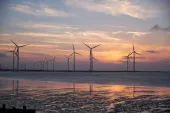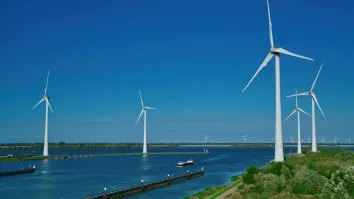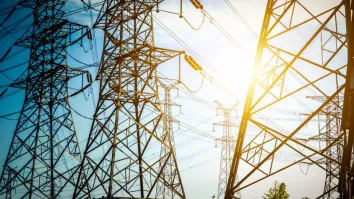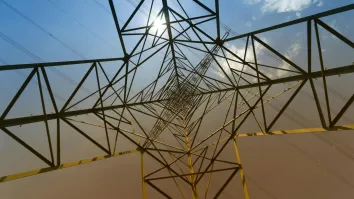
Financing the future of energy
Asia’s energy demand is extremely high. In many low- and middle-income countries, access to energy - sustainable or conventional - is seriously lacking. Even in a major emerging economy like India, energy is too scarce and expensive for much of the population.
By financing energy projects in the private sector, development banks help provide more people with access to energy, boosting economic development and improving living standards. Energy is, after all, the quintessential engine of economic and social growth.
Growth both ways
Historically, development banks have always played a large part in long-term private sector investment, their vision being that a thriving private sector leads to lasting economic and social growth. The energy sector is perhaps most illustrative of this, as the development of the sector, as well as the product itself, creates growth.
Development banks can provide the long-term commitment that energy projects generally require and serve as a catalyst financier, motivating commercial banks to join them in the financing of these projects.
Sustainability should always be at the core of the investment strategy. The world population stands to increase to almost nine billion people in 2050, and as the number of people living in poverty is declining, the poor of today will be able to consume more in the future. In order to cope with these changes, sustainability in all areas of business is fundamentally important. The concept of sustainability playing a role in delivering long-term competitive advantage to a business is also becoming increasingly mainstream.
Development banks seek to finance projects that combine positive economic, social and ecological returns. All projects must meet high environmental and social standards, such as the IFC Performance Standards. As part of the investment process, development banks look at a developing country’s so-called ‘least cost development plan’, which assesses optimal ways of generating energy while maintaining a diversified energy base. This helps determine preferred projects, and minimizes increases in electricity tariffs.
Dilemmas
In some low-income countries, making energy available to large numbers of businesses and households is presently only feasible by increasing conventional power-generating capacity. Some energy projects therefore present dilemmas, forcing development banks to seek the right balance between the ambition to promote renewable energy, and the goal to increase access to electricity in developing markets. Most development banks feel that in low-income countries, providing access to affordable energy should have priority, and this means they may decide to finance conventional power projects there.
Another issue faced in low-income countries by development finance institutions - and other financial institutions, for that matter - arise from an increased focus on compliance and good governance. This can result in historic corruption issues surfacing and demanding further investigation. Detailed investigations are sometimes perceived as an unwelcome project delay. But ultimately, working towards robust governance structures and enhancing transparency benefits the project, and ultimately stands everyone in better stead.
Funding the future
As power needs are so high, Asia presents good investment opportunities. This rings especially true for those countries where governments support private initiatives for power solutions based on renewable fuel sources like wind, hydro, biomass, geothermal, solar and biogas.
Development banks in all shapes and sizes can have significant impact as they invest in medium to large energy projects and some have debt-arranging ability.
By providing low-cost electricity generation, and taking ecological and social impact into account, development banks help propel economic development and help finance the future of energy in a sustainable way.
Wilfred van den Bos, Investment Officer at FMO



















 Advertise
Advertise







